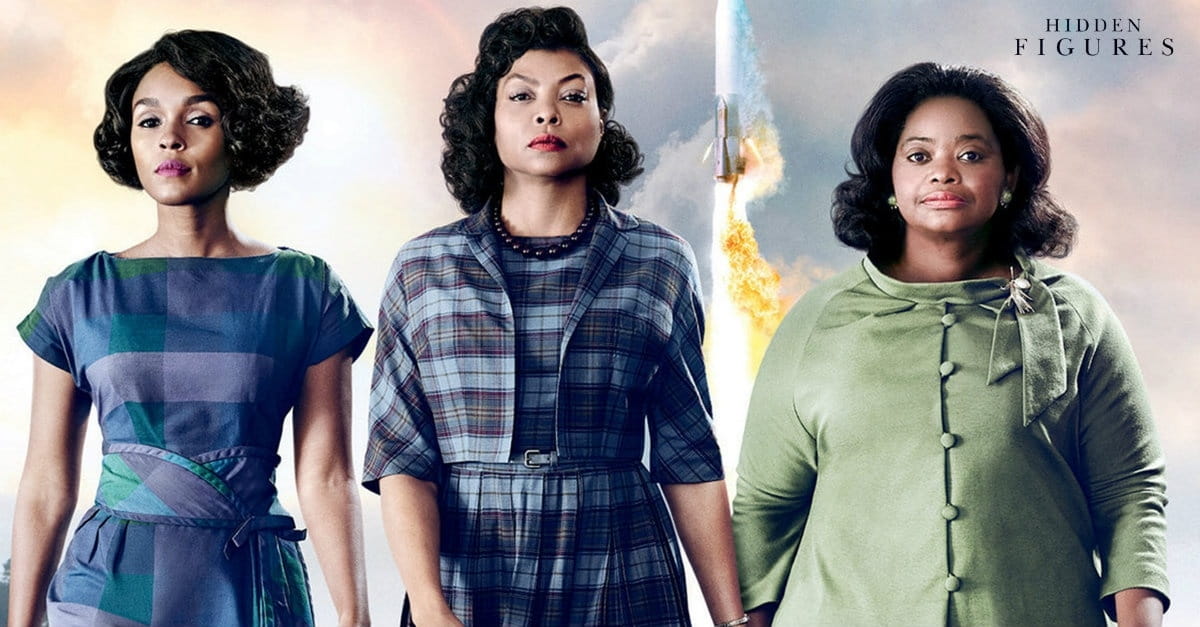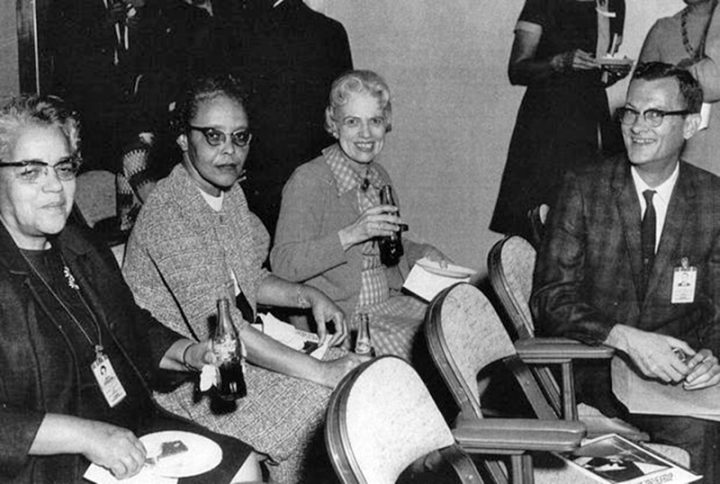
“Not to us, O Lord, not to us, but to Your name give glory, because of Your lovingkindness, because of Your truth.” – Psalm 115:1 (NASB)
The critically-acclaimed 20th Century Fox film Hidden Figures tells the story of the gifted mathematician Katherine Johnson who, along with Dorothy Vaughn and Mary Jackson, played key roles (to say the least) in NASA‘s endeavor to launch astronaut John Glenn into space.
As someone who has had an interest in history since my earliest childhood, I can appreciate the significance of films like Hidden Figures in that they help to educate and inform us about aspects of American history that were previously unknown (or little known) to the masses.
A case in point is yours truly, who readily admits to having absolutely no idea who Katherine Johnson was prior seeing the movie trailer for Hidden Figures while watching television one weekend afternoon.
And though I now count myself among the millions of Americans who, by virtue of the Hidden Figures film, have come to greatly admire Katherine Johnson for her invaluable contributions – to America and the world – particularly considering the degree of racial and gender animus she was required to endure, my esteem for her, and her colleagues, is not based solely in the fact that they accomplished what they did as women who are black.
Having said that, I am not at all naive to the likelihood that the ethnicity of these women served as a primary impetus for why the film Hidden Figures was made or the book written.
Given the cultural and societal implications of what these women accomplished in the Jim Crow 1960s, when racial segregation was openly practiced at workplaces like NASA, it is both logical and natural that ethnicity and gender would be considerations when reflecting on what is unarguably an incredibly unique story.
NASA’s own website provides a glimpse into the kind of work environment the women of Hidden Figures would have encountered:
The first African-American “computers” did the same work as their white counterparts, but in a period when segregation was policy across the South and in the U.S. armed services, they also encountered segregated dining and bathroom facilities, along with barriers to other professional jobs. One woman, for example, recounted being hired to work in the chemistry division, but ended up reassigned to the West Computers because African-Americans were not employed for her original position. Computing sections became more integrated after the first several years. Katherine Johnson, who joined the West Computers in 1953, only spent a few weeks there. Then assigned to work with Henry Pearson in the Flight Research Division, Johnson went on to join the Space Task Force in 1958 where she calculated trajectories for Alan Shepherd and John Glenn’s space flights.
So, yes, I fully comprehend the racial, social, and cultural ramifications of what Johnson, Vaughn, and Jackson accomplished.
I get that.
In fact, I have no doubt that the film Hidden Figures will serve – and is already serving – to encourage and inspire many young people, regardless of ethnicity or gender, to pursue their own dreams of a STEM-related career (perhaps even at NASA).
But to whatever extent the film Hidden Figures may serve as a catalyst for such admirable pursuits – be it to one person or one million – the impetus for such desires should not be that these gifted individuals are black and female.
As laudable as their accomplishments are, what Mss. Johnson, Vaughn, and Jackson achieved should resonate with us not as beacons to highlight what those who are of a particular ethnicity or gender are capable of in and of themselves, but to shine a light upon a sovereign God who created us with the unique biological and physical attributes we each possess and, likewise, endows us with the various talents and gifts we employ in our daily lives (James 1:17).
“God is actively involved in bringing about the worldly success of His people and leveraging that success for His purposes.” – Nate Shurden, “Worldly Success”, as published in the January 2017 issue of TableTalk Magazine, p. 7
In titling this blog post The ‘Hidden’ Theology of Hidden Figures, I am in no way suggesting that there exists an underlying Davinci Code-type message to be deciphered by watching the film, but to proffer that our accomplishments in this life, however significant or insignificant, should point us always to God and never to ourselves.
Notwithstanding the well-intentioned and much-appreciated objective of films like Hidden Figures in raising our awareness of the achievements of women like Katherine Johnson – if for no other reason than that her accomplishments are so incredibly unique – the greater story is of the God who created Katherine Johnson to possess her unique talents, and who foreordained that she would employ them in making the monumental impact on the world that she did.
“I am the vine, you are the branches; he who abides in Me and I in him, he bears much fruit, for apart from Me, you can do nothing.” – John 15:5
As we appreciate women like Katherine Johnson, and the encumbrances she, and others along with her, were forced to endure and overcome, namely racism and sexism, obstacles that are inherently anathema to the biblical doctrine of imago Dei, we must not lose sight of the fact that the discernible characteristics that make us who we are as human beings – such as ethnicity, sex, gifts, and talents – are determined and imparted by a sovereign God for the purpose of bringing glory to Himself (1 Corinthians 10:31; Colossians 3:23-24).
It is not that Katherine Johnson, Dorothy Vaughn, and Mary Jackson accomplished what they did as black women “computers” at NASA that makes Hidden Figures story so noteworthy, but that God, who created them black and female (Acts 17:26) chose, in His sovereign grace, to imbue them with the requisite talents and gifts which He, in His divine omniscience, knew they each would need for such a time as theirs.
Humbly in Christ,
Darrell
Image credits:
pressenza.com
spaceflightinsider.com
kuow.org







